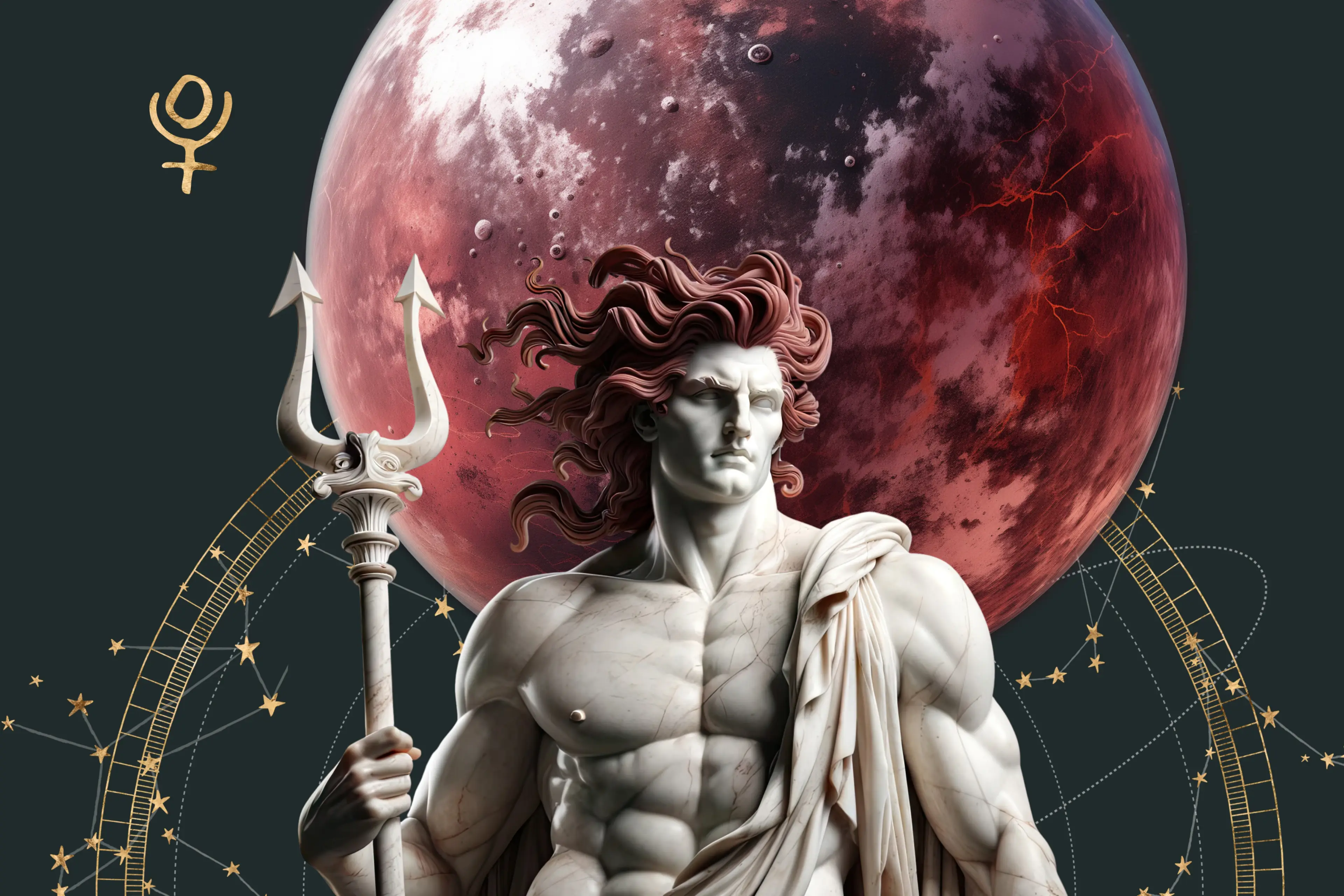Pluto represents the processes of rebirth and transformation and the capacity for regeneration following profound experiences of loss, change, or breakdown. Pluto’s function is to reveal and expose the darkness, fear, or rot that lurks beneath the surface and to transform it so healing can take place.
In a horoscope or birth chart, dwarf planet Pluto represents where we confront our deepest fears and experience intense and transformative lessons. It can symbolize how and where we experience power struggles, breakdowns, and experiences of deep catharsis and healing.
Key Concepts
Pluto does not rule a zodiac sign, but it shares affinities with Scorpio, as both are concerned with transformation, catharsis, and rebirth.
Pluto is related to the Major Arcana tarot card Judgement, which represents a process of awakening, rebirth, and the call to evolve to a greater level of consciousness.
Astronomical Features
Pluto spends 10-20 years in each zodiac sign.
Pluto cycles through the entire zodiac about once every 248 years.
Pluto retrogrades once every year, with each lasting around 6 months.
Pluto Symbolism and Meaning
Pluto is an outer planet of the solar system that was discovered in 1930 by Clyde Tombaugh. The cultural themes surrounding its discovery are resonant with its symbolic meaning: the unleashing of nuclear power and the rise of fascism, as well as the emergence of psychoanalysis and depth psychology and the associated awareness of unconscious drives and repressed desires.
Pluto rules over the titanic, elemental, and primordial forces within us that put us in touch with our own immense inner power and our fears of powerlessness. The intensity of Pluto’s energy can be channeled towards either destructive or regenerative ends.
Pluto in Balance
In a natal chart, Pluto in balance can manifest as an intense and powerful persona and the ability to magnetize and intrigue others with a sense of mysteriousness and dramatic flair.
A balanced Pluto can show up as the ability to channel the intensity of the Pluto transit in productive ways, by drawing on one’s powers of regeneration to heal following experiences of trauma or loss and a resolve to understand and fearlessly confront one’s own inner depths.
Pluto out of Balance
Pluto’s influence out of balance can show up as the abuse of power and the tendency to be manipulative or cruel. The destructive impulse can run unchecked and can be acted out in harmful ways if not properly channeled or released.
Pluto as an out of balance planet can manifest as an unwillingness to examine one’s shadow side or one’s fears, instead acting in the grip of powerful compulsions, obsessions, or fears.
Psychological Aspects of Pluto
Pluto represents the psychological need and the struggle to confront and transform the shadow side of our psyches by working through trauma, fears, obsessions, taboos, and compulsions. Its influence works to obliterate flimsy or inauthentic aspects of the ego, which eventually leads to greater liberation, freedom, and truth across all areas of life.
Pluto in Mythology
Pluto is the Roman name for the ancient Greek god of the underworld, Hades, and presided over the processes of death and rebirth. The Plutonian archetype can be seen in all deities and mythological figures of death and rebirth, such as the Hindu goddess Kali, the Hawaiian goddess Pele, and the ancient Sumerian queen of the underworld Ereshkigal.

